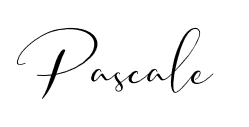Summer is over … Bummer!!
As you look back … Were you able to take some time off? Did you stay local or travel? How long were you gone for? Was it restful? Rejuvenating??
Today we’re discussing the importance of TIME OFF as a form of essential SELF CARE. In other words, as an investment in YOU.

I ask this question in my intercultural trainings. Every country, every culture, apprehends this question and topic differently. In most European countries, people “work to live”: in other words, one of the main goals of earning a living is to save enough to be able to take time off and “go away on vacation.” In the US, it seems to be the opposite: people behave like they “live to work”. But is it truly a cultural choice? Every August, Americans watch with envy as people across Europe leave their jobs and shut down their shops to go on holiday for weeks on end.
Every single worker in the European Union is guaranteed four weeks of paid vacation. In the US, no federal or state law (except a few states) requires employers to provide paid or unpaid vacation time to employees. However, most US employers offer paid vacation time to their workers to remain competitive: on average, US workers receive around ten days of paid holiday each year … and most people barely take their vacation days (only 48% of American workers do)!
When I share this in my intercultural trainings, non-American participants gasp. It’s incomprehensible to them. On the other hand, my American cross-cultural training participants come to me at the end of the trainings and ask … how they can emigrate to Europe?!
It took me a few years to convince my new American husband after we got married to actually take a vacation and travel. The first few years, he’d reluctantly take one week off and spend it with our young children and I at my European’s family’s home in the Netherlands. Everyone in this small Dutch seaside town knew who the American was: he was the one spending hours on end in the only phone booth in the middle of the plaza in the center of town (this dates us: this was before cell phones or internet …). Eventually I was able to coerce two weeks away out of him. But it’s only when he finally accepted to take a third week that I overheard him saying “NOW I understand the Europeans … it truly takes two weeks to fully unwind and disconnect!”

The problem is that numerous studies have linked burnout to lack of vacation. No wonder, then, that there’s such high rates of burnout in the United States: according to an extensive study published in March 2023 by Zippia, 89% of Americans have experienced burnout in the past year. The stress and lack of motivation caused by burnout can have disastrous consequences in the workplace: it costs the US economy an average of $300 billion per year.

Of course, knowing all of the above, and doing a job I absolutely love – of being a coach, nonetheless, helping people figure out their own lives!!-- , I personally was never going to experience burnout. Because… You know…

Turns out … work is work is work. And 70 or 80 hours a week of it is simply too much – even when you love what you do. Enjoyable or not, we all NEED TIME OFF to regenerate! Our minds function as productivity powerhouses, yet they require intervals of rest to avoid burnout. Persistent work without pauses can lead the brain into a condition of reduced concentration, decreased efficiency, and increased stress.
On the other hand, taking or even thinking about vacations releases dopamine, our “feel good” hormone which heightens our mood and increases our motivation. Dopamine is also released by doing new or different things which in turn unleashes creativity and innovation: vacations allow our brain to become untethered and think “out of the box”. Another thing that shines besides the sun during vacations is serotonin: it infuses our brains with calmness, bringing us to a relaxed state during which our stress and worries fade away. Finally, the cherry on the cake of this little demonstration is that our brains, so grateful for the time off, rejuvenate themselves during our vacations, and restore themselves to full cognitive capacity. Freed from constant requests, we reclaim our concentration, efficiency, and cognitive abilities.
Seems like quite a conundrum, doesn’t it? Vacations/time off is essential to rejuvenation and good health, yet we don’t get enough of it in America. So how do we keep going? How do we stay in good mental and physical health without burning out, in this marathon called “life”?
Here are a few tips:
1. Take The Time Off

If you have accrued vacation days, don't hesitate to use them. As I hope we made very clear, taking time off from work is essential for your mental and physical well-being. It allows you to recharge, relax, and return to work with renewed energy and focus. Whether it's a short weekend getaway or an extended vacation, stepping away from your routine can lead to increased productivity and reduced stress in the long run.
2. Be a Well-being Advocate

Embrace the idea of prioritizing your well-being and don't feel guilty about it. Advocate for the importance of taking breaks and vacations to your colleagues and peers. Share your positive experiences and outcomes from your time off to inspire others to do the same. By being open about your commitment to well-being, you contribute to creating a healthier work culture that values rest and rejuvenation.
3. Microbreaks Matter

If you can't take extended time off, make the most of microbreaks throughout your day. Even short pauses can help alleviate stress and prevent burnout. Use these moments to step away from your work, stretch, meditate, or simply take a few deep breaths. These mini-breaks can improve focus, boost creativity, and contribute to a more balanced workday. Incorporating these vacation tips into your routine can lead to improved overall well-being, increased job satisfaction, and a more sustainable approach to work. Remember, taking care of yourself is not only beneficial for you but also sets a positive example for those around you.
I want to hear all about how YOU make the time to regenerate!
Cheers to you and your loved ones for a successful and fresh new start into the upcoming year of work.





